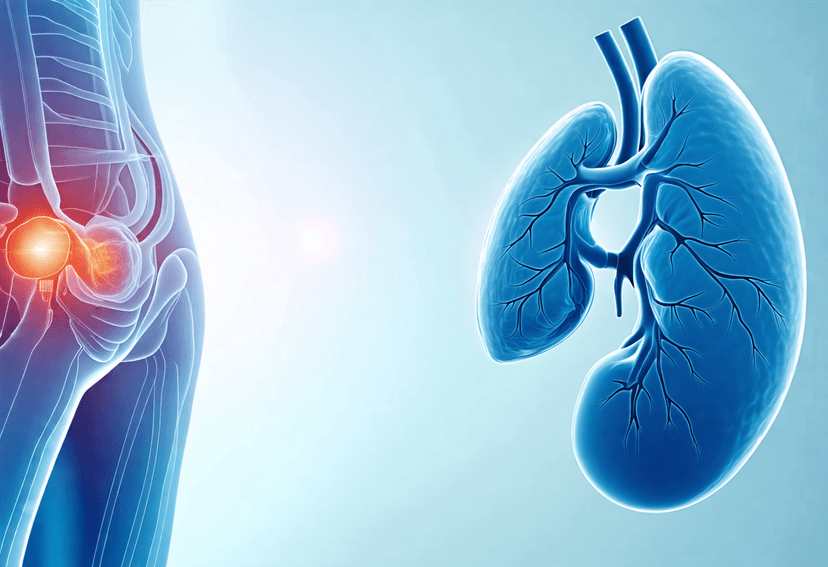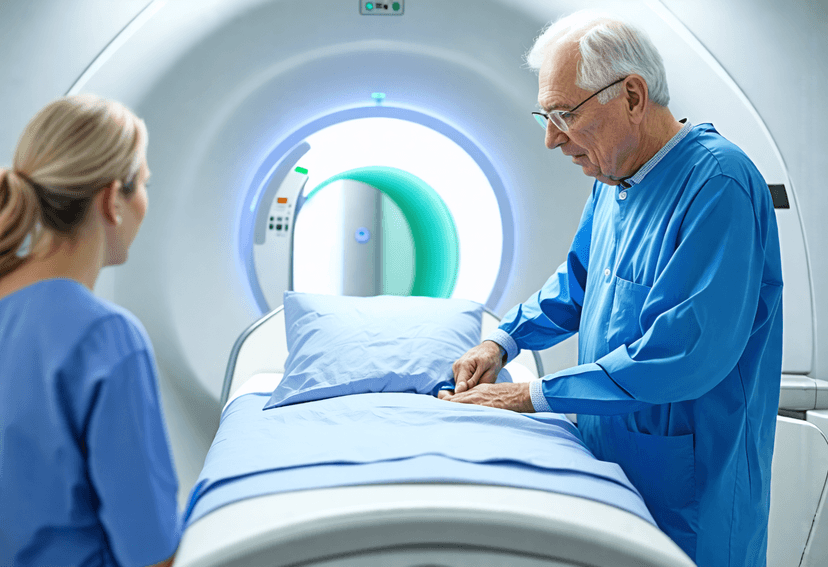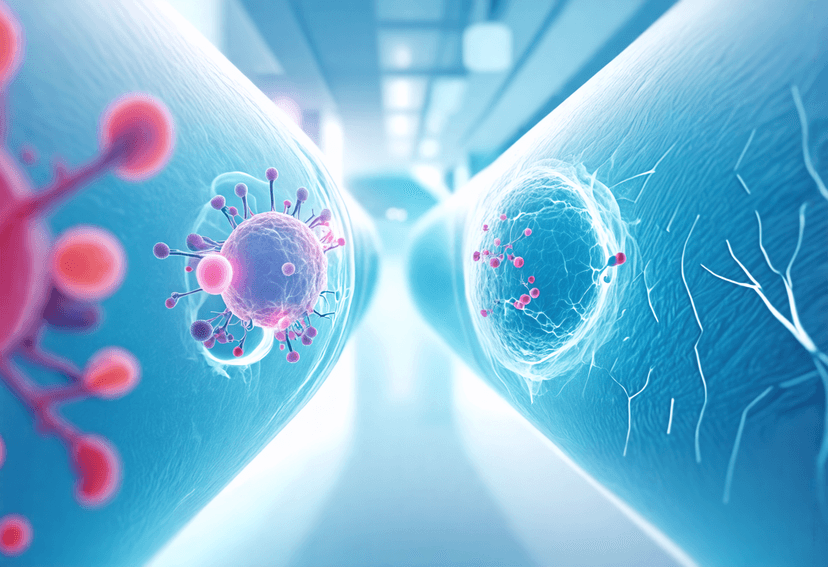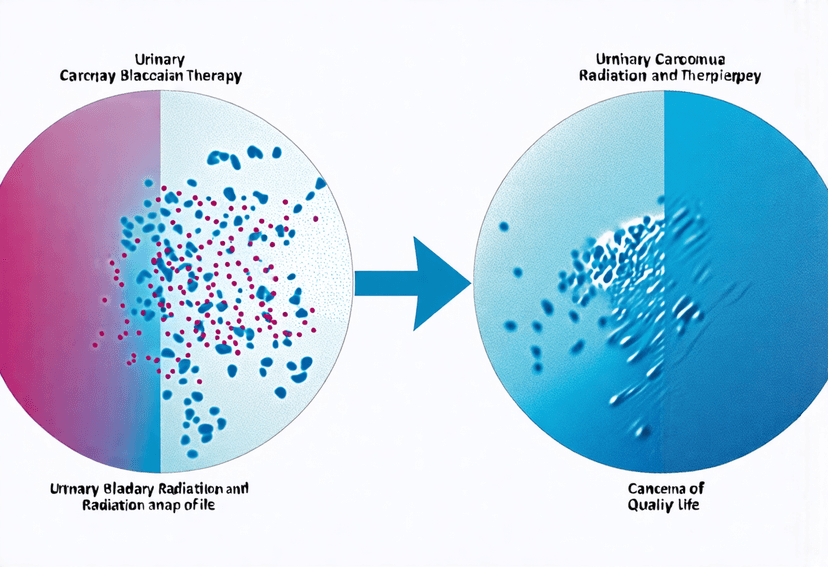
Radiation Therapy for Urinary Bladder Carcinoma
25 Oct, 2024
 Healthtrip
HealthtripWhen it comes to treating urinary bladder carcinoma, a type of cancer that affects the urinary bladder, radiation therapy is often a crucial part of the treatment plan. The goal of radiation therapy is to destroy cancer cells while minimizing damage to surrounding healthy tissues. As a patient, understanding the ins and outs of radiation therapy can help alleviate anxiety and empower you to take an active role in your treatment. In this article, we'll delve into the world of radiation therapy for urinary bladder carcinoma, exploring its benefits, types, and what to expect during treatment.
Understanding Radiation Therapy
Radiation therapy uses high-energy rays to destroy cancer cells or slow their growth. It can be used alone or in combination with surgery and chemotherapy to treat urinary bladder carcinoma. The type and duration of radiation therapy depend on the stage and aggressiveness of the cancer, as well as the patient's overall health. Radiation therapy can be administered externally or internally, and the choice between the two depends on the location and size of the tumor.
Most popular procedures in India
External Beam Radiation Therapy (EBRT)
EBRT is the most common type of radiation therapy used to treat urinary bladder carcinoma. During EBRT, a machine outside the body directs high-energy rays to the affected area. The treatment is usually given five days a week for several weeks, and each session lasts around 15-30 minutes. EBRT can be used to treat the entire bladder or specific areas where the cancer has spread.
Wellness Treatments
Give yourself the time to relax
Lowest Prices Guaranteed!

Lowest Prices Guaranteed!
Benefits of Radiation Therapy
Radiation therapy offers several benefits for patients with urinary bladder carcinoma. It can help reduce the size of the tumor, alleviate symptoms such as pain and bleeding, and improve quality of life. In some cases, radiation therapy can even cure the cancer. Additionally, radiation therapy can be used to treat cancer that has spread to other parts of the body, such as the lymph nodes or bones.
Reducing Symptoms
Radiation therapy can help alleviate symptoms associated with urinary bladder carcinoma, including pain, bleeding, and frequent urination. By reducing the size of the tumor, radiation therapy can also help improve bladder function and reduce the risk of complications.
Types of Radiation Therapy
There are several types of radiation therapy used to treat urinary bladder carcinoma, each with its own advantages and disadvantages. The type of radiation therapy used depends on the stage and aggressiveness of the cancer, as well as the patient's overall health.
3D Conformal Radiation Therapy
3D conformal radiation therapy uses computer technology to create a 3D image of the tumor and surrounding tissues. This allows the radiation oncologist to precisely target the tumor with high-energy rays, reducing damage to healthy tissues.
Intensity-Modulated Radiation Therapy (IMRT)
IMRT is a type of 3D conformal radiation therapy that uses varying intensities of radiation to destroy cancer cells. This approach allows for more precise targeting of the tumor and reduces the risk of side effects.
What to Expect During Radiation Therapy
Before starting radiation therapy, patients will undergo a simulation session to plan the treatment. During this session, the radiation oncologist will use imaging tests such as CT scans or MRI to create a 3D image of the tumor and surrounding tissues. The patient will then be fitted with a immobilization device to ensure they remain in the same position during each treatment session.
Side Effects
Radiation therapy can cause side effects, including fatigue, urinary symptoms, and skin changes. However, these side effects are usually mild and temporary, and can be managed with medication and lifestyle changes. It's essential to report any side effects to the radiation oncologist to ensure prompt treatment.
Conclusion
Radiation therapy is a crucial part of the treatment plan for urinary bladder carcinoma. By understanding the benefits, types, and what to expect during treatment, patients can feel more empowered and in control of their care. If you're facing a diagnosis of urinary bladder carcinoma, don't hesitate to ask your doctor about radiation therapy and how it can help you achieve the best possible outcome.
HealthTrip, a leading medical tourism facilitator, can help you find the best radiation therapy options for urinary bladder carcinoma. With a network of top hospitals and medical professionals, HealthTrip can provide you with personalized treatment plans and support every step of the way. Contact us today to learn more about radiation therapy for urinary bladder carcinoma and how we can help you access world-class care.
Related Blogs

Bladder Cancer: Risk Factors and Symptoms
Stay informed about bladder cancer, its risk factors, and symptoms

Urinary Bladder Carcinoma Radiation Therapy and Palliative Care
Radiation therapy can provide palliative care for urinary bladder carcinoma

Radiation Therapy for Bladder Cancer in Elderly Patients
Radiation therapy is a suitable treatment option for elderly patients

Bladder Cancer Treatment with Radiation Therapy and Immunotherapy
Learn about the combination of radiation therapy and immunotherapy for

Urinary Bladder Carcinoma Radiation Therapy and Quality of Life
Radiation therapy can improve quality of life for urinary bladder

Bladder Cancer Radiation Therapy and Chemotherapy Side Effects
Learn about the side effects of combining radiation therapy and










